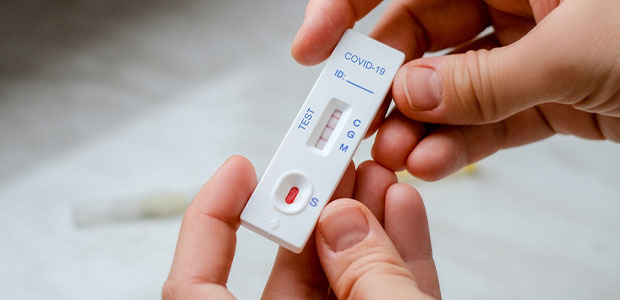
Worker Shortages and Flight Delays are Contributing to the Slow Delivery of Rapid Tests
Despite many efforts, millions of rapid test kits are backlogged for delivery.
- By Shereen Hashem
- Jan 25, 2022
Like so many other vital goods, at-home rapid tests have been caught in the supply-chain situation, caused by a combination of workers calling out sick with omicron and warehouses that are already operating over capacity to handle the massive demand for tests. The impacted tests are some of the test kits produced by “iHealth,” which are manufactured in China and have been purchased by at least 15 states.
"The delays that we've experienced during this time, I know that sometimes it's out of our control, but this is something that I would say is really critical and a priority for us to continue to offer in-person learning for each and every one of our students," Rebecca Andrade, public school superintendent said.
According to an article, as of Thursday, the distribution company that handles the iHealth shipments, XChange Logistics, had worked through the millions of backlogged tests, only to face delays on three of iHealth's charter planes carrying roughly 25 million tests. At the same time, the distribution company said it's still sending out 20 truckloads of tests per day from its Los Angeles warehouse, which is the biggest distributor of its tests. For iHealth, which received authorization for its at-home rapid tests from the FDA in December and can manufacture up to 200 million tests per month, producing the tests has turned out to be the easy part. Getting them to customers is the challenge.
"I hope that one day the American people can get the test the same day," said iHealth COO Jack Feng, referring to the timeline of shipment from China and delivery in the U.S.
XChange Logistics said their warehouses were struggling at 200-300 percent over capacity last week. The stress of moving so many goods has been compounded by workers testing positive for COVID-19-- which usually means that additional workers have to quarantine due to exposure, said Frank Filimaua, the company's general manager. Over the past month, up to 30 percent of XChange Logistics' workforce has been out with COVID-19, Filimaua said.
Under normal circumstances, without worker shortages and such a high-demand product, it would take 24-48 hours to get the tests from the planes onto trucks and on their way to customers. But, FIlimaua said, it was instead taking an average of five days.
iHealth said the Biden administration had stepped up its efforts to help the company, which has now also contracted with the government to supply 250 million tests to Biden’s efforts to give out 1 billion free tests to the public.
"I think it's hard to guarantee a consistent freight supplier for so many of these companies, because there's not a program where when you receive an EUA [emergency use authorization from the FDA], you receive immediate distribution assistance," said Andrew Sweet, managing director of COVID-19 Response and Recovery at the Rockefeller Foundation.
"That's in part why we're at where we're at," said* Sweet. "It is really dependent on the individual manufacturer to have those relationships in order to get their product to market as quickly as possible." As a result, the companies that have existing relationships can "hustle."
"They're more successful than others," he said.